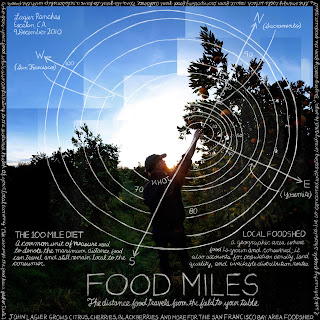 | ||||
| This item (15510) is available at chinaberry.com. I get nothing if you decide to purchase it. |
Thanksgiving is barreling toward us. I say "barreling" because it feels nothing like the holiday of my childhood. Then it was a gateway to the season of celebration that was December. It was anticipated and planned for of course, but there was no stress about what would be served or how dinner would be done. Or in my house, it seemed that there was also no question about who would be there and how the experience would unfold.
The food was traditional and anticipated because it was seasonal. It was the first time that we would enjoy the persimmon pudding that would be present through year end, then disappear again until next year's crop of persimmons. It was also about that time that we would be the beneficiaries of the once-a-year case of Coke and Bubble Up that would be given to my father by some vendor his business used. It was consumed sparingly but such a treat! And of course there would be turkey, dressing, potatoes, beans and homemade wine.
Besides my parents and me, I recall the traditional guests as my brother and his wife and two children, my maternal grandparents and perhaps my Uncle John and Aunt Juanita. It's a bit fuzzy about who moved in and out the picture over the years. The table would only accommodate eight. But the core was always there - my parents and me - even as others grew up and moved away, had other commitments or died.
My mother did the meal from beginning to end. I don't recall anyone bringing dishes although they might have. She worked very, very hard and long hours getting things ready in advance and cooking the entire day of Thanksgiving dinner. As she got older it must have tired her out more and more because somewhere along the line I think she must have stopped. Perhaps when the people were no longer there to congregate, perhaps when she just decided it was too much. Perhaps when she decided it was time for the next generation to step up and take on the tradition. Whatever it was, it was long ago because she died in 1988 and had stopped having Thanksgiving at least five years before that. So the strong memories I have and feel so connected to are from more than 30 years ago.
There was a great deal to be thankful for back then. But I don't think we spent much time thinking about it. Maybe it means so much to me now because no one who was there then is here any longer. No one but me. Maybe its meaningful because what I took for granted as permanent is no more.
Today my Thanksgivings are a different kind of celebration. In their way, they honor friends, good food, others' traditions. These Thanksgivings and their traditions are no less worthy than mine. Yet, I still long for mine.
NOTE: The picture above is a simple way to introduce mindful thankfulness into Thanksgiving, or actually any meal. IT is a simple wooden bowl hewn from American hardwood. It holds carved wood acorns and maple leaves. Using it is simple. According to the catalogue, just pass the bowl around the Thanksgiving table so each person can take on of the pieces. As everyone holds their piece, they can express their gratitude silently or out loud. When everyone is finished, pass the bowl around again to collect the pieces. The full blow now a meaningful symbol of the thanks offered by the entire group can be placed on the table as a reminder.













